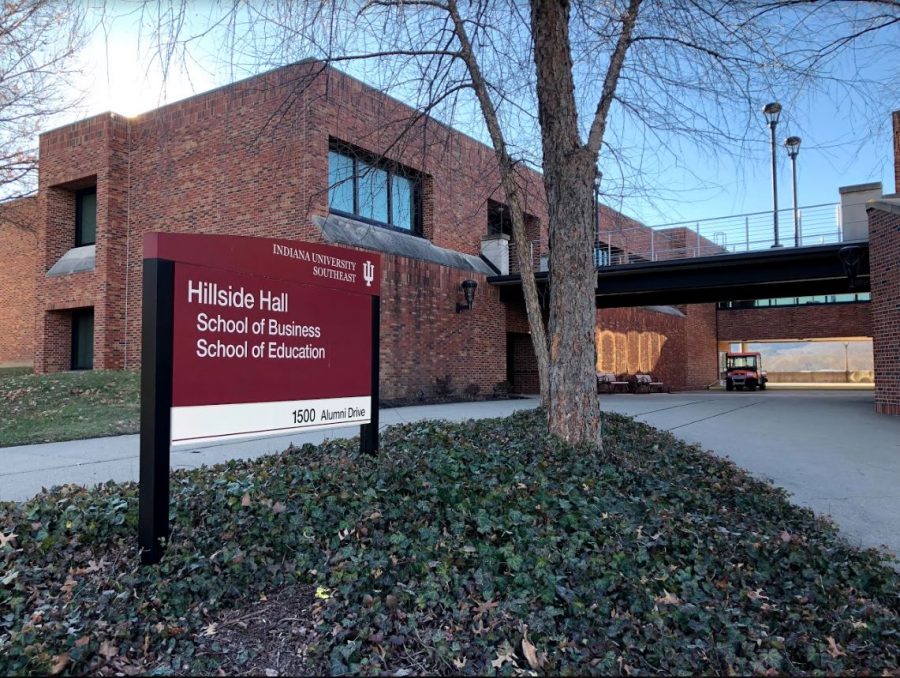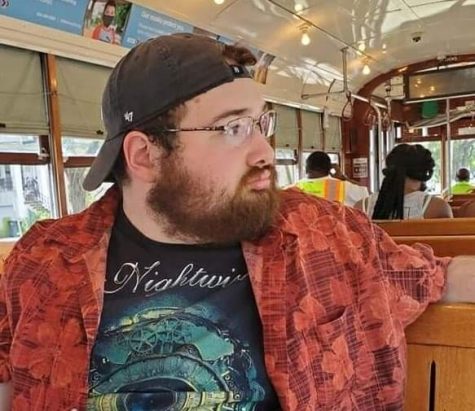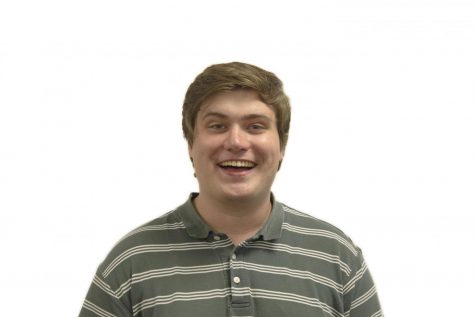IU Southeast School of Business to release 2021 Economic Outlook, seniors face employment uncertainty
Professor Uric Dufrene is set to present the 2021 Economic Outlook soon and seniors from IU Southeast and Purdue are beginning to wonder about the state of the job market after commencement
Hillside Hall file photo.
November 11, 2020
The streets of Louisville bustle with more life than they have in months due to, it seems, a feeling that this very difficult year will soon be behind us, leaving many with an uncertain hope for a brighter outlook in 2021.
“My outlook is still pretty positive given the circumstances,” said David Harbeson, a senior at Purdue University and co-op at Samtec. “Where I work now has adjusted well to working with COVID precautions and has managed to keep operations running.”
In a post-election environment and as a possible vaccine for COVID-19 looms on the horizon, IU Southeast’s business department is teaming up with Bloomington’s Kelley School of Business to bring students and faculty a view of the future, one that hopefully eschews the uncertainty of the past year.
Uric Defrene, a former IUS vice chancellor who holds the Sanders Chair in Business, will deliver the local economic forecast for 2021 with several other IU business professors and experts at the virtual 2021 Economic Outlook presentation, which takes place Nov. 16 at 9 a.m. and can be accessed for free through IUS, though registration is required.
“Well, 2020 is a year that we have never experienced,” Dufrene said. “We have seen the steepest job losses and the largest gains, as far as records are available. With 2021, we should see economic activity that will get closer to trend growth. We are not going to see the drastic swings, either up or down.
However, some students are hesitant to enter the new year after feeling the weight of the economic upheavals caused by COVID-19, like IUS senior and former caterer and bartender Matthew Woosley, who has been working towards opening his own restaurant after graduation.
“The economic forecast isn’t as important to me as whether or not my life will be restricted to the point that the industry I have spent years working in is able to work,” Woosley said. “A lot of dine-in services will be affected by this for a long time. Now that mobile food has been such a huge success for so many, I think that most places will stick to it as much as possible.”
Other students see the past year as a reckoning for small business and a push for big box retailers over “mom and pop” shops, and while they are unafraid for their personal chances, they see the walls closing in on the capabilities of entrepreneurs.
“The job market is in a state where more and more people are once again moving into jobs owned and operated by large companies and businesses who can afford to operate during the COVID crisis,” IUS history senior Devin Burden said. “I think COVID has really increased the market for delivery and contactless pickup services in many businesses, resulting in less contact between individuals. How this will affect the communities and businesses I don’t know, but I fear small businesses are going to hurt in the coming years.”
Withstanding his worries for small business, Burden says he has a pretty optimistic view on his employability, citing the exact expansion of big business that worries him.
“I’m worried that responses may not be as fast as they were in the past but I’m not worried [about getting a job],” Burden said. “I fear small businesses disappearing due to lack of funding and so [many] people losing their precious jobs. I am blessed and lucky to currently have [a job] currently when I apply to a new job.”
Dufrene says that, no matter what, some sectors of the economy are going to see bigger returns, but that others might not be as responsive to growth or change.
“For example, in the current recession, service sector industries such as leisure and hospitality have experienced a greater adverse impact than durable goods, longer lasting items such as computers, automobiles, and appliances,” Dufrene said, pointing out the fact that some industries are less affected by things like the 2020 shutdowns.
Burden tends to agree, as he sees quite a bit of growth in some industries in the relatively down economy of the past year.
“I’m impressed by the sheer scale and quickness in adapting the new conditions so businesses and other groups can still prosper in this new socially distanced environment,” Burden said. “I would say any delivery service has boomed since the onset of the pandemic and the medical PPE companies are experiencing a level of unprecedented profit.”
No matter their intentions, Dufrene offers the advice that, whatever the economy, students should make sure to focus on technical competency and critical thinking skills to make themselves viable in their chosen fields and that these things have not changed.
“Commencement is just the beginning,” Dufrene said. “Students must have a lifelong commitment to learning. This includes additional formal education beyond the baccalaureate degree, and learning that is also career specific.”




